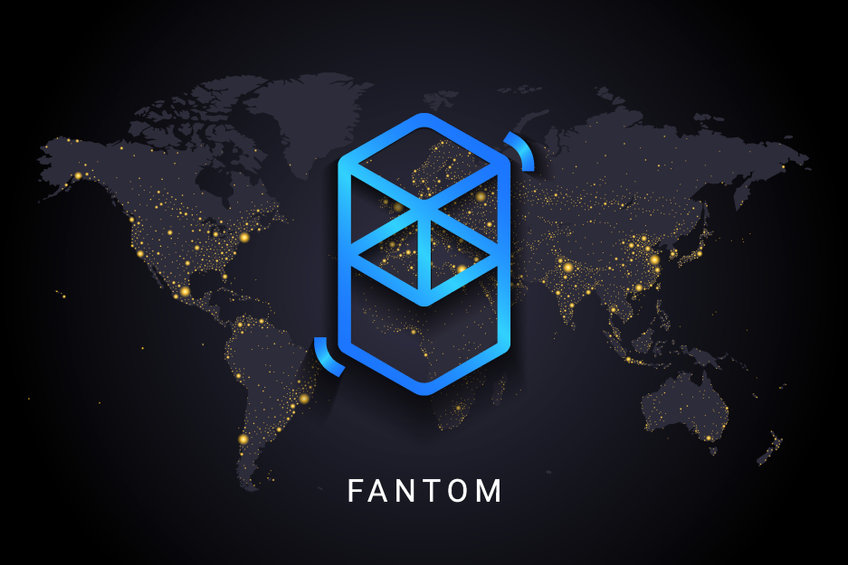
- “If they can pass the debt to future voters, then they can win the votes of current voters. So the incentive of the government is to create inflation because it lowers the cost of borrowing.”
- “You have to protect yourself in this inflationary environment. But if you’re already super rich and you already own all these assets, then you win by default”.
- “In 2020, Forbes reported that the increase in wealth for the Forbes (richest) 400 went up the highest in 2020 than in any year since they started recording. The reason it went up the highest rate is because they printed money”
- “What is the incentive for a politician? The incentive for a politician is to gain power and stay in power….how are they going to try and get votes? By spending a whole bunch of money without taking money from the taxpayer…they pass the book down the road”.
This was a fun one.
There are bigger things in the world than cryptocurrency; more important issues. Michael Kong, CEO of Fantom, understands that. It’s also what cryptocurrency is trying to solve, although we aren’t there yet – something he acknowledged and we discussed at length, assessing whether it is reasonable to compare to the Internet growth or other benchmarks you often come across.
Personally, I’m pessimistic about the state of the economy right now. The cost of living crisis has hit regular people hard. Houses are becoming increasingly unaffordable – part of the reason I left my native Ireland and moved to Colombia. Politicians have gone from calling inflation “transient” to blaming it on Putin’s war, before last month shifting to “it’s a problem but it has peaked and will be under control by the end of the 2022”.
Michael is CEO of Fantom, which is one of the biggest cryptocurrencies around. The episode took place only a couple of hours after the CPI reading for June revealed inflation had upped again to 9.1%. Michael is a deep thinker and has lots of fascinating views on where he sees the prices of financial assets going forward, why the economy is in trouble, the political environment, and the inequality gap.
We also discussed Fantom (obviously!). We delved into what separates it from rival cryptocurrencies in terms of the validation mechanism, and he was refreshingly candid about the trade-offs that were made in prioritising attractive features such as low fees and high transaction speeds. In truth, the podcast was in two sections: Fantom / Blockchain technicals, and Macro / Today’s society and economy, which I have timestamped in the description below.
Link to podcast here on Spotify.
Competitors
I believe cryptocurrency often suffers from tribalism, an argumentative and competitive landscape where investors sometimes jump on each other for liking certain coins and not liking others. I really enjoyed Michael declaring that Fantom was “standing on the shoulders of Ethereum giants”, big enough to give credit to a rival coin for laying a lot of the groundwork in the industry.
Of course, he believes Fantom has improved certain aspects of their technology, which we discussed in depth, but it was nice to hear an objective and well-balanced opinion from him.
Macro
My favourite part was when Michael showed how in touch he was with the economic reality that so many are facing. He bemoaned the fact that the money printer took money from the poor and put it into the hands of the rich so starkly during COVID, and the fact the paycheck-to-paycheck workers are paying the price.
“This leads to a massive wealth transfer from the poor to the rich. This is one of the reasons why I started getting into crypto…I can’t change the political system; I’m a single voter out of 20 million in Australia. But what I can do is have influence over my own life, and control what I can control” – Michael Kong
We talked about what one can do to protect themselves as the value of fiat currency continues to erode, the prices of goods rise and it generally becomes more challenging to live. And why, unfortunately, it is all stacked in favour of the rich.
“You have to protect yourself in this inflationary environment. But if you’re already super rich and you already own all these assets, then you win by default. That’s why in 2020, Forbes reported that the increase in wealth for the Forbes (richest) 400 went up the highest in 2020 than in any year since they started recording. The reason it went up the highest rate is because they printed money”.
To me, it’s the inequality gap widening that is the harrowing part of all this. We saw this happen during COVID when those lucky enough to be able to work from home (including myself, for the record) were relatively immunised (pardon the pun) from the economic carnage that lockdowns caused.
On the other hand, those working in-person jobs such as bar staff, retail, performers and so many more got hit mercilessly. Those living paycheque-to-paycheque suddenly didn’t have a paycheque, while those at home simply had to pull on a pair of sweatpants and make sure their bed wasn’t too untidy in the background of their Zoom call.
The government’s response essentially transferred wealth from the poor to the rich. Enormous stimulus packages have served to now trigger this full-blown inflation crisis, further exacerbating the difficulties those very same paycheque-to-paycheque workers had during the pandemic itself.
Michael Kong gets all this. He is a CEO and obviously highly intelligent, but he understands how the world works. He also is trying to make a difference. If you listen to one CoinJournal podcast, I think it should be this one – covering important issues with an intelligent and candid guest was really enjoyable, educations and thought-provoking. Timestamps are provided in the Spotify description if you prefer to listen to certain sectors on Fantom / crypto / inflation / politics / the future etc.
Happy Friday.

